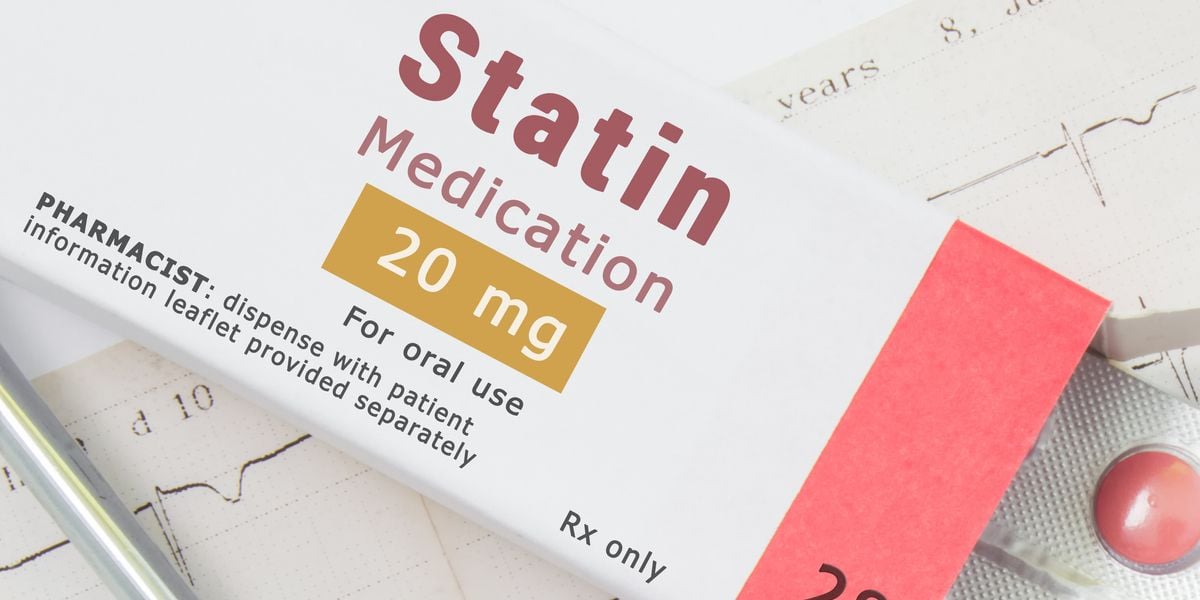Diabetes and statins have a complex relationship and are the focus of intense patient and healthcare debate. Statins are cholesterol-lowering drugs.
Statins are cholesterol-lowering drugs that are frequently used as part of diabetes care due to the knowledge that people with diabetes face a greater likelihood of heart attack and stroke.
When used alongside good blood glucose control and other medication, the case for statins argues that they cut cholesterol levels and lower the risk of a cardiovascular event.
Type 2 diabetes in particular is commonly linked with higher levels of cholesterol.
How can I lower my risk of cardiovascular problems without taking statins?
There are other ways to lower your cholesterol and reduce your risk of stroke and heart attacks.
These methods include stopping smoking, reducing your alcohol intake, taking regular physical activity and ensuring your diet is not over-reliant on processed foods.
In some people, a change in lifestyle can make enough of a difference to cholesterol levels for you to not require cholesterol lowering treatment such as statins.
If, however, your cholesterol levels remain above the target cholesterol levels and factors such as age and family history of heart disease and stroke show you to be at a high risk of heart disease, your doctor will likely advise statin treatment.
What do statins do for people with diabetes?
Statins affect the way the liver manufactures cholesterol, lowering levels of LDL cholesterol (the so called ‘bad’ cholesterol) and raising levels of HDL cholesterol (the so called ‘good’ cholesterol).
The terms good and bad cholesterol are used because, whilst we do need both types of cholesterol, having too high levels LDl cholesterol is linked with higher risks of heart disease whereas having high level of HDL cholesterol is linked with reduced risks of heart disease.
Which statins are prescribed?
There are a variety of different statins available on prescription in the UK, including:
- Atorvastatin (Lipitor)
- Fluvastatin (Lescol, Lescol XL)
- Pravastatin (Lipostat)
- Rosuvastatin (Crestor)
- Simvastatin (Zocor)
Do statins work?
Statins definitely lower cholesterol and major studies have indicated lower risks of heart attack amongst people with an existing heart condition taking statins.
Research shows that for every 1,000 people that are at risk of heart problems, if those people take a statin for three years, statins will prevent:
- 7 non-fatal heart attacks
- 4 strokes
- 2 deaths
This means that nearly 99% of people will not benefit from statins, however, because 1% of people do benefit, this means that considering there are around 17.5 million people in the UK that are at risk of heart problems, thousands of heart attacks, strokes and death could be prevented.
What are the side effects of statins?
Statins are usually well-tolerated by people with diabetes. Side effects can include:
- Headaches
- Affect on liver function
- Stomach problems such as abdominal pain, constipatio, flatulence, diarrhoea and vomiting
- Rashes
- Disorder of the muscles (myopathy)
- Memory problems
- Increased risk of developing type 2 diabetes
Research shows that risks of developing type 2 diabetes are increased by higher doses of statins and the duration they are taken for.
Whilst the risk of developing stations is low, under 1% of those that take statins, the risk has sparked a lot of debate as to whether or not the diabetes risk may outweigh benefits of the drugs.
The decision by NICE is that the heart benefits are of greater significance than the diabetes risk. Read more about the side effects of statins
Should I take statins?
Some people may wish to take statins to do everything they can to reduce their risk of a heart attack or stroke whereas other people may decide that the likelihood of statins preventing a cardiovascular event is too low to justify taking them and potentially experiencing the side effects.
Ultimately, if your doctor advises you to take statins, it is your choice whether you follow the recommendation or not and your doctor should accept your decision.
Statins and grapefruit
People taking certain statins should not consume grapefruit.
The interaction between statins and grapefruit could increase the effect of statins leading to a greater likelihood of experiencing side effects.
Statins and drug interactions
Statins may interact with other medications including:
- Fibrates
- Warfarin
- Some antibiotics
- Some HIV medications
Should statins be taken by all people with diabetes?
A number of studies are being carried out to assess the safety and effectiveness of statin treatment in groups of patients with diabetes that are not currently at high risk of heart disease.
This includes research into whether statins have benefit in teenagers with diabetes.
Statins are the subject of current and ongoing healthcare debate when it comes to diabetes patients.
Links with statin use and increased risks of memory trouble and development of type 2 diabetes could effect whether statin use will be expanded in future.
A statin is one part of diabetes care and shouldn’t be used in place of maintaining a good diet, taking regular exercise, quitting smoking and cutting down on alcohol.








